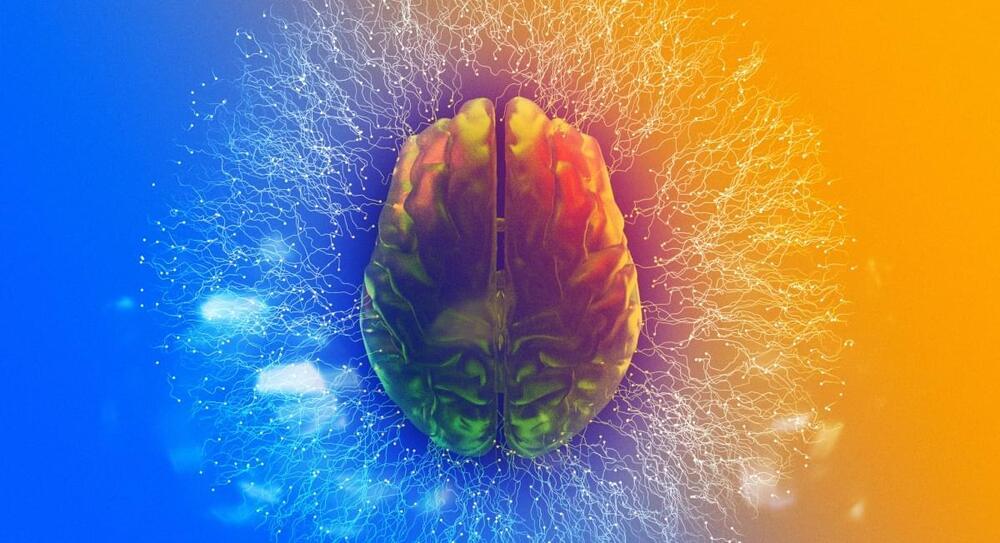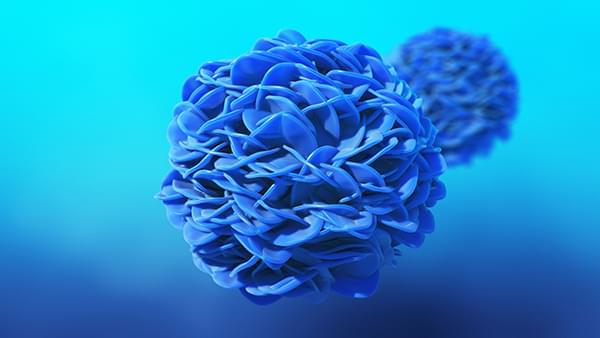Dark matter is an archetype of a missing phenomenon, but there are plenty of potential explanations for it.
Get the latest international news and world events from around the world.

The beautiful intersection of simulation and AI
Check out all the on-demand sessions from the Intelligent Security Summit here.
Simulation can help engineers overcome these challenges. Rather than tweaking the AI model’s architecture and parameters, it has been shown that time spent improving the training data can often yield more extensive improvements in accuracy.
How a common cold develops
Winter and rainy season is worst for those who have low immunity. Antibiotics have many side effects. But there high fever due to viral infection is also risky.
A cold is an infection caused by a virus. It’s a common and usually mild illness that affects the nose and throat. Find out more here: http://bit.ly/KV8y1c.
The content is intended for general information only and does not replace the need for personal advice from a qualified health professional.
The Amazing Visuals of The Orville: New Horizons (Part 2 of 2)
There are many components that make The Orville: New Horizons a great show, and not the least of which are the beautiful visuals. Please enjoy this compilation of amazing shots from the final four episodes of the third season of The Orville.
Part 1: https://youtu.be/EkuP4rQC-Zc.
#RenewTheOrville.
If you’d like to help support the channel:
https://buymeacoffee.com/JohnDiMarco.
https://www.paypal.me/DarwinDiMarco.
Thank you!
0:00 — Intro/From Unknown Graves.
0:54 — Midnight Blue.
3:25 — Domino.
9:01 — Unknown Future.
11:13 — Conclusion.
Thanks to Jitse Lemmens for my amazing avatar:
Project Liftoff: The Future Of Robot Combat is AI. This Is Havoc Episode 4
Father son duo Jim and Andrew Kazmer build and drive one of the most exciting and best supported robots at NHRL in Project Liftoff.
They’ve further developed this into a second bot in Flip n Cut with a variation in weapon type and have pushed the limits of innovation with their fully autonomous combat robot DeepMelt.
How does a fully autonomous robot work, and how will it assist human drivers in future?
What is a Meltybrain, how does it work?
Why is the choice of wheel so important?
Will we see a 250lb Project Liftoff?
Find out in the episode 4 of This Is Havoc: Liftoff.
NHRL is the biggest and most accessible robot combat league in the world, home of the 3lb, 12lb and 30lb robot combat world championships.
We are one of the toughest places to win, but also one of the most friendly and welcoming for all ages and experience.
Space Renaissance Christmas Special 2022
The last event of 2022 will take place December 19th: Christmas Special meeting. with our president Prof. Bernard Foing!
We’ll have a look at what we have done in 2022, and we’ll announce the program of 2023.
The Zoom meeting will be open to all of the SRI Members and invited friends – just registered or going to register during the meeting.
All the participants will have the possibility to make questions to the SRI President, the Founder and the Board of Directors, about the 2023 program. Criticisms and proposals will be welcome too.
We have a huge programme for 2023, and we are going through some key steps, to achieve an higher legal status for our association: to be registered as a not for profit entity on the Unic National Register of the Third Sector Entities (RUNTS). Such an achievement will allow SRI to call Italian taxpayers to target the 5×1000 of their yearly tax to SRI, and the donations to be deducted from the tax declaration. These conditions, when achieved, will greatly contribute to the sustainability of our initiatives.
We are asking each of the SRI members and supporters to assume this priority for December 2022: to bring onboard many new members and to seek for donors and sponsors!
We will celebrate together during the Xmas Special event and exchange season greetings and wishes for a vibrant year 2023 for Space Renaissance International!

Origins of Rare Childhood Cancer-Like Disease Identified
Until now, some researchers believed Langerhans cell histiocytosis (LCH), a rare and fatal form of cancer in children, is derived from immune cells called dendritic cells, while others believed that they originate from related immune cells called monocytes. A new study showed mutated LCH cells have properties similar to both monocytes and dendritic cells, as well as a relatively new type of dendritic cell called DC3.
The Fermi Paradox: Extinction
Start listening with a 30-day Audible trial and your first audiobook plus two Audible Originals are free. Visit.
http://www.audible.com/isaac or text “ISAAC” to 500–500.
The Fermi Paradox ask us how in a Universe so vast and ancient we seem to be the only intelligent civilization around, with no older interstellar alien empires visible in the galaxy. But could extinction play a role in that, or might extinction events instead drive evolution forward?
Visit our Website: http://www.isaacarthur.net.
Support us on Patreon: https://www.patreon.com/IsaacArthur.
SFIA Merchandise available: https://www.signil.com/sfia/
Social Media:
Facebook Group: https://www.facebook.com/groups/1583992725237264/
Reddit: https://www.reddit.com/r/IsaacArthur/
Twitter: https://twitter.com/Isaac_A_Arthur on Twitter and RT our future content.
SFIA Discord Server: https://discord.gg/53GAShE
Listen or Download the audio of this episode from Soundcloud: Episode’s Audio-only version: https://soundcloud.com/isaac-arthur-148927746/the-fermi-paradox-extinction.
Episode’s Narration-only version: https://soundcloud.com/isaac-arthur-148927746/the-fermi-para…ation-only.
Credits:
The Fermi Paradox: Exctinction.
Episode 204, Season 5 E37
Written by:

FDA Approves Gene Therapy for Tough-to-Treat Bladder Cancer
MONDAY, Dec. 19, 2022 (HealthDay News) — Patients with a high-risk bladder cancer now have a new option to treat it.
The U.S. Food and Drug Administration on Friday approved a gene therapy called Adstiladrin, which is designed to work for patients who have what’s called high-risk non-muscle-invasive bladder cancer (NMIBC) that hasn’t responded to the standard treatment, Bacillus Calmette-Guérin (BCG), but hasn’t spread. BCG is a vaccine typically used for tuberculosis.
“This approval provides health care professionals with an innovative treatment option for patients with high-risk NMIBC that is unresponsive to BCG therapy,” Dr. Peter Marks, director of the FDA’s Center for Biologics Evaluation and Research, said in an agency news release. “Today’s action addresses an area of critical need. The FDA remains committed to facilitating the development and approval of safe and effective cancer treatments.”

New FDA-Approved Eyedrops Could Improve Close-Up Vision
Dec. 14, 2021 — A new FDA-approved eyedrop medicine could replace reading glasses for millions of Americans who have age-related blurry vision.
The product, called Vuity, was approved by the FDA in October and went on the market last week. The new medicine begins working in about 15 minutes and provides sharper vision for 6 to 10 hours.
Vuity is the first FDA-approved eyedrop to treat the condition known as presbyopia, which tends to affect people ages 40 and older. The prescription drug uses the eye’s natural ability to reduce its pupil size.